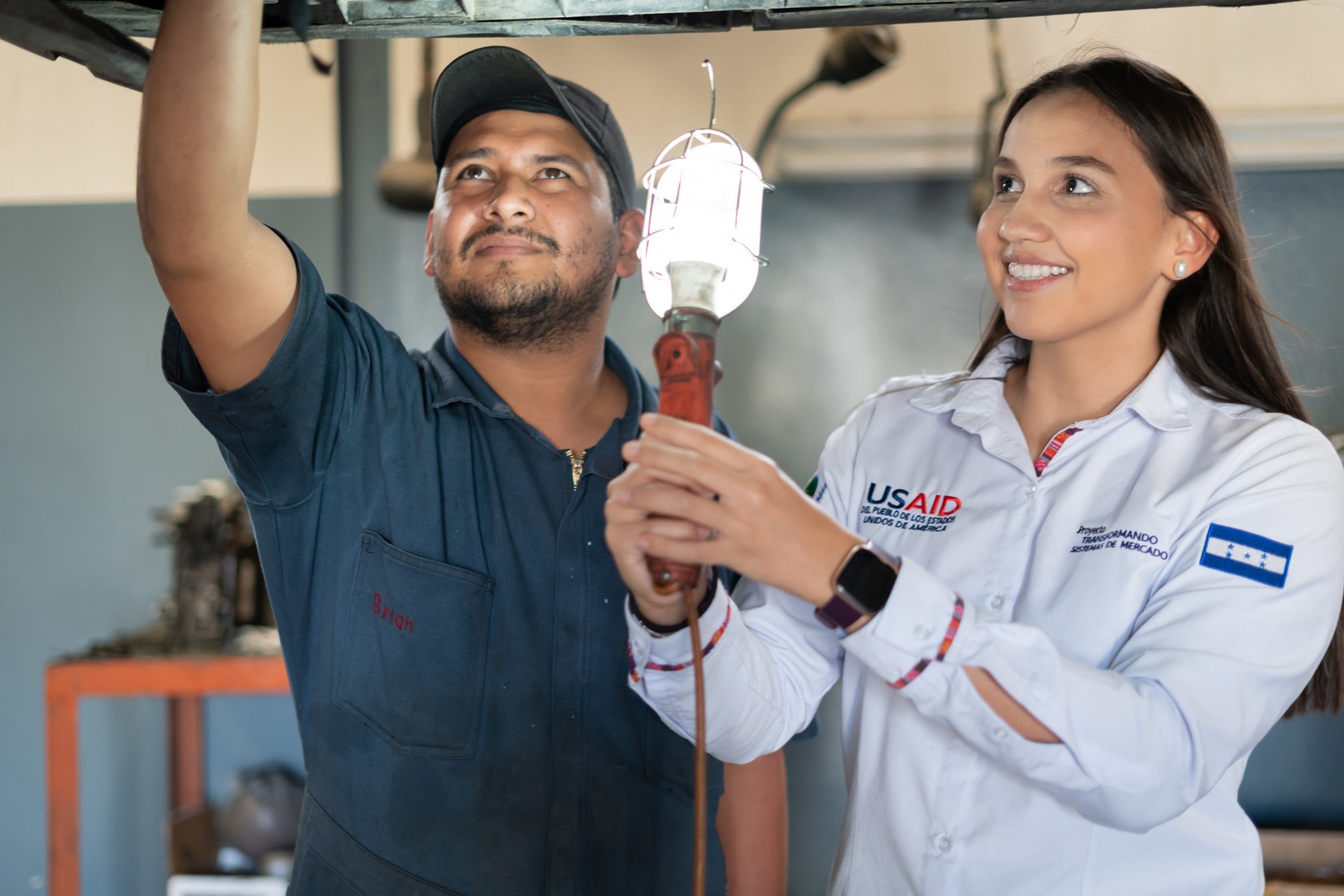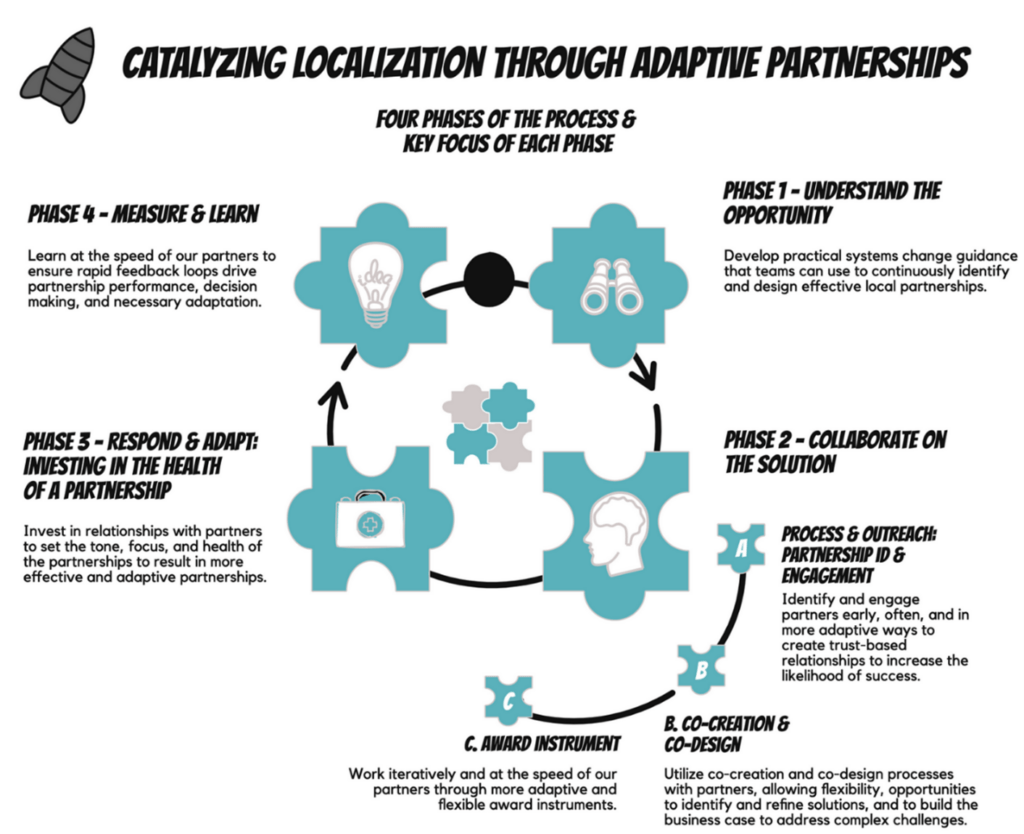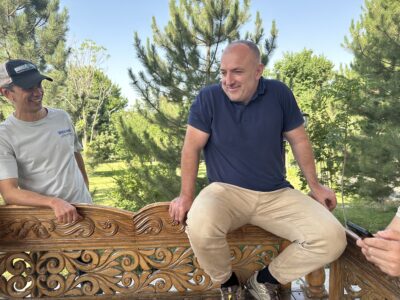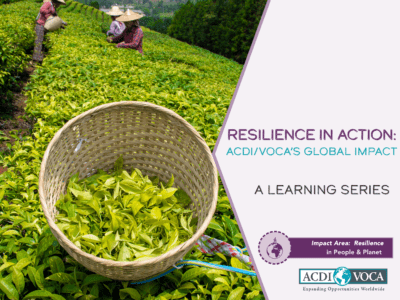
This blog was authored by Mike Klassen, an independent consultant and a part-time member of the BEAM Exchange core team, with input from Hayden Aaronson and Mark Sevier.
Why is it that most USAID-funded market systems development (MSD) projects have inflexible and inappropriate contract structures for partnerships with market actors?
- Technical staff may not understand strategic tactics and available instruments (their strengths and limitations).
- Operations staff may not understand the market systems approach and its requirements.
- There may be risk aversion and fear of not following USAID rules and regulations.
- There may be a misinterpretation of USAID rules and regulations.
These fundamental challenges are not new; many appeared in the MSD Procurement Series, published by BEAM Exchange in 2020. Most organizations have a few “unicorn” MSD projects that work through these problems, while the rest of their MSD projects struggle to get unstuck. While significant resources are being invested in technical training and backstopping on MSD, the operational systems and mechanisms are often overlooked.
In 2023, ACDI/VOCA tested an experimental approach to help a group of six early-stage MSD projects tackle these issues. Taking the partnership cycle one stage at a time, the group held clinics, bringing together operations and technical staff from each project with ACDI/VOCA technical leads to challenge myths, think through key roles, and problem-solve the pressing issues. These clinics led to two key outcomes: (1) actual change in projects and (2) a new set of operational guidance.
Actual Change to Projects
The clinics on adaptive partnerships contributed to visible changes at multiple levels, which fall into four categories:
Change 1: Individual beliefs, understanding, and interpretation of rules
For each stage of the partnership cycle, we articulated three to five myths that block project staff from being more adaptive and flexible in how they approach partnerships. Debunking long-held ideas, combined with group reflections, and conversations led to shifts in staff mindset, such as realizing they can engage partners prior to the release of an Expression of Interest (EOI) or Annual Program Statement (APS) and move ahead before the approval of a grants manual.
Change 2: Individual confidence to push for change internal to the project
Building on those shifts in beliefs about what is possible, project staff leveraged their exposure to positive examples of change to build their confidence in promoting changes in their own projects. Their confidence was reinforced by ACDI/VOCA technical leads Award and Compliance staff, who at times gave direct “permission” for staff to break out of their old ways of doing things. Changes here include the following:
- Making a case for change to senior management, leading to buy-in to test a new EOI and Request for Applications (RFA) process
- Building confidence to push back on USAID via arguments for why new instruments and mechanisms are beneficial
Change 3: Project changes to strategy and process
In the pilot group, most of the participating projects followed through on their proposed changes to shift their internal processes. Frequently, these steps included further exchanges with technical support teams and in-depth planning within their own team. A key feature of the group was that each project had at least one technical staff member with MSD experience and one operations staff member with grant and subaward experience who joined the clinic sessions together. This kind of participation led to some meaningful changes in how projects operated, including the following:
- Increased information flow and trust between technical and operations teams
- Rethinking of the co-creation process, using systems change and results chains to target which partners and what type of changes
- Modifications to APSs and grants manuals
- Proactive engagement with partners before a funding grant’s window
Change 4: Organizational policy changes
During the same pilot period, ACDI/VOCA developed and formalized a new instrument called the Market Actor Umbrella Agreement, which responded to key requests from several of the participating projects. This tool had previously been used in a “unicorn” project but hadn’t been institutionalized or made widely available.
A New Set of Operational Guidance
Our newly published operational guidance is a product of in-depth conversations with multiple MSD project teams. It reflects their input and experience throughout four phases in the partnership lifecycle:

For each stage, the guidance includes some basic framing of the issue, key myth-busters, team members’ roles, and key tools, resources, and examples. ACDI/VOCA’s experience was that working through the guidance one stage at a time, with ample time for project teams to react, ask questions, and share examples, was key to generating buy-in, shifting beliefs, and building their confidence to initiate internal changes within projects.
Some of the most powerful, prevalent myths dispelled during the clinics included:
- “Our success is primarily measured in how efficiently we spend grants according to the plans laid out in our budget and annual plan.”
- “Because of ‘procurement sensitivities,’ we cannot discuss potential or planned programming with the private sector, which limits co-creation opportunities.”
- “Solicitations (e.g., APSs, RFAs, etc.) can only happen after inception analysis is complete and the grants manual is approved.”
- “Co-creation always results in a grant or award to a partner.”
- “You cannot meet with potential partners until the APS or RFA is published.”
- “You cannot start actively partnering or giving grants until the grants manual is approved by USAID.”
While the guidance is targeted toward USAID-funded MSD projects, you can find insights from a wider range of donors in the paper titled, “Fit for business: modifying internal procurement processes to suite adaptive MSD programmes,” from BEAM Exchange’s MSD Procurement Series.
Stay tuned for some exciting new content in adaptive partnerships, including a blog on tips and tricks for replicating adaptive partnership clinics to spur organization-wide change.








